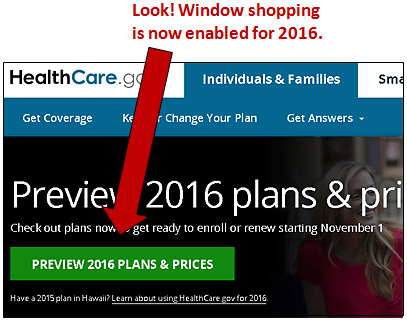 How much are health care premiums on the Obamacare exchanges set to rise in 2016? That depends. Here are a few possible answers:
How much are health care premiums on the Obamacare exchanges set to rise in 2016? That depends. Here are a few possible answers:
- If everyone keeps the coverage they currently have, Charles Gaba estimates that the weighted average increase—that is, weighting states with bigger populations more heavily—will be about 12-13 percent.
- If everyone shops around and chooses the second-lowest price silver plan, the federal government estimates that the weighted average on federal exchanges will go up 7.5 percent.
- It depends on the state. If you live in California, you can figure on about a 4 percent increase. Texas? 5.1 percent. Oklahoma? 35.7 percent.
- If you live in a big city and you shop around, Kaiser estimates that the weighted average will go down 0.7 percent if you account for the average size of the federal subsidy. In some cities, the decrease is even larger.
In other words, depending on how scary you feel like being, you can accurately cite the increase as 35.7 percent, 12-13 percent, 7.5 percent, or negative 0.7 percent. For example:
- Obama: “In my hometown of Chicago, rates are going down by 5 percent.”
- Democratic think tank: “If you shop around for the best rate, HHS estimates an average increase of 7.5 percent on the federal exchanges.”
- Republican think tank: “Liberal analyst Charles Gaba estimates an average increase of 13 percent, with 18 states seeing increases of 20 percent or more.”
- Trump: “Some people tell me their rates are going up by 25, even 35 percent!”
Every one of these is an accurate citation. So which one is the fairest? I’d say (a) you should count the tax credit since that affects what people actually pay, (b) some people will shop around and some won’t, and (c) you should usually cite a broad national estimate, not a state or local number.1 With all that taken into account, my prediction is that the average person using Obamacare will see an increase of about 6-7 percent.
1Obviously there are exceptions to all of these. If the Los Angeles Times wants to report on average increases in Los Angeles, then it should use the Los Angeles number. If you’re reporting on how well insurance companies are doing at estimating the premiums they need to charge, you should use raw numbers that don’t count the tax credit. Etc.
But if you do a telephone survey of Obamacare users next year and simply ask them, “How much more are you paying for health insurance than last year,” I think we’re going to end up around 6-7 percent.














